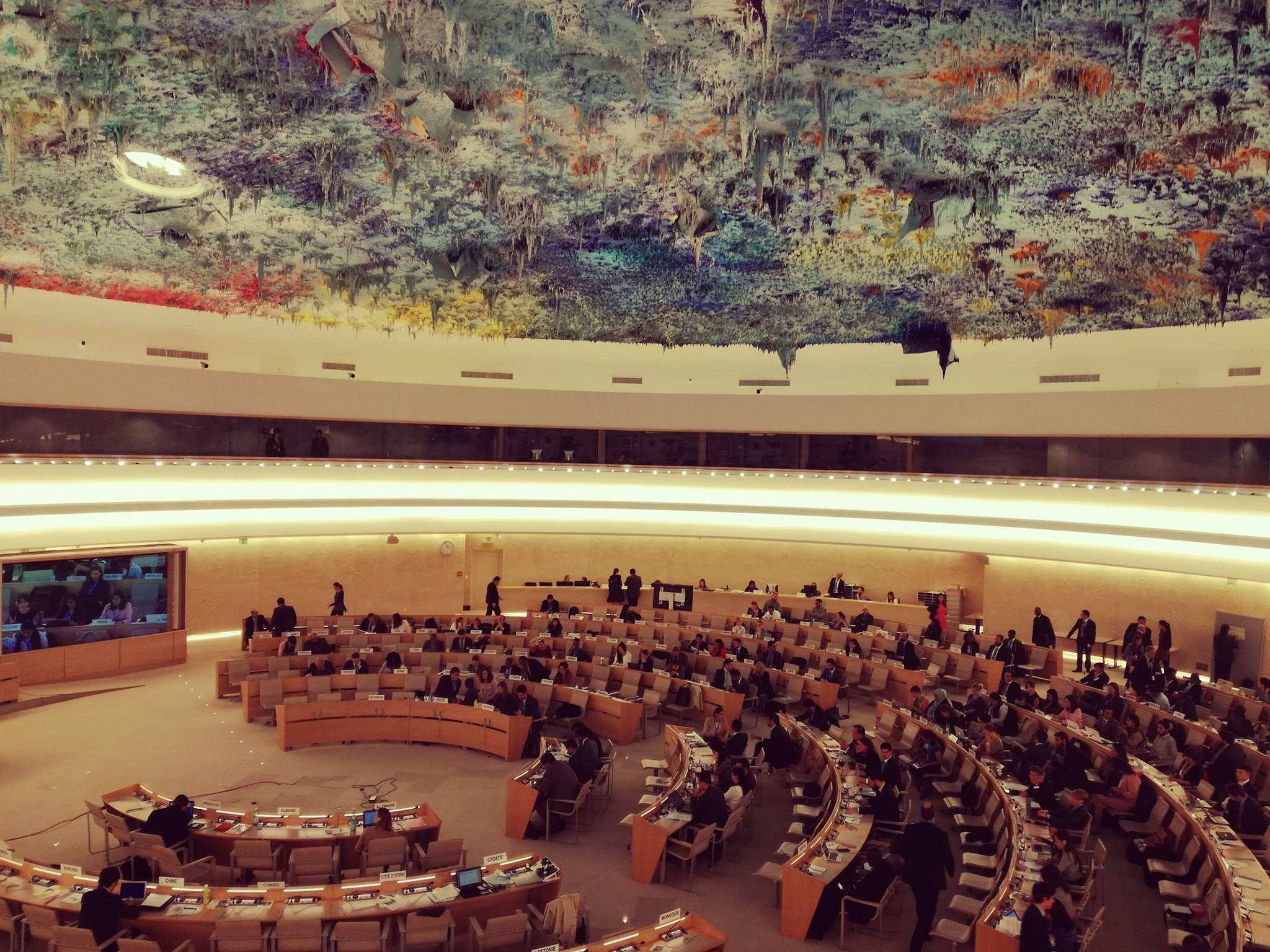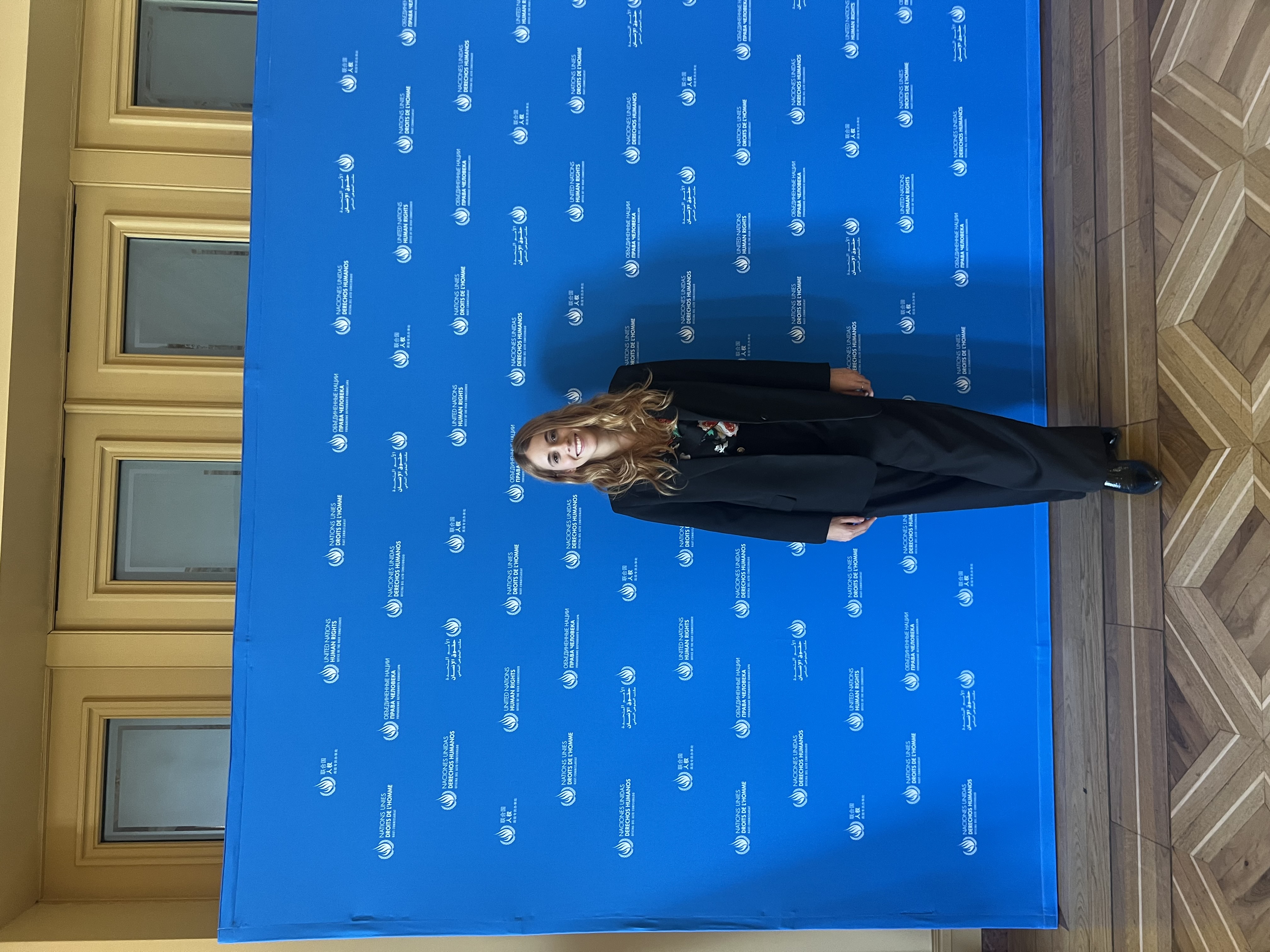The students of the Refugee Rights Lab of the University of Padova present their submission to the Human Rights Committee in Geneva

The 142nd session of the United Nations Human Rights Committee is currently underway, taking place from 14 October to 8 November 2024 in Geneva. The Committee is considering the State reports of Ecuador, France, Greece, Iceland, Pakistan, and Türkiye. In addition to these reviews, the Committee will adopt Lists of Issues for Latvia as well as the List of Issues Prior to Reporting for Benin, Cameroon, Monaco, Poland, Slovenia, and South Africa. As part of the Human Rights Committee, all States parties are required to report on the measures they have adopted to uphold the rights outlined in the International Covenant on Civil and Political Rights (ICCPR) and to update on their progress in safeguarding these rights.
The Pakistan Review took place on October 17 and 18 in Palais Wilson. 21 NGOs submitted reports providing information and data to help assess Pakistan's commitments in upholding civil and political rights. The Refugee Rights Lab, led by prof. Antoine Meyer with 12 students of the master’s degree in Human Rights and Multilevel Governance, submitted a report addressing Pakistan’s Illegal Foreigners Repatriation Plan (IFRP) established last year by the Pakistani government. The submission highlighted the current situation of Afghan refugees in the country, raising significant concerns about its repatriation policies and the protection of the principle of non-refoulement.
Sara Farasat and Thayna Ferreira Malta represented the Refugee Rights Lab in the informal briefing with the Human Rights Committee on October 16th and in the two sessions of the review of the State of Pakistan (October 17th from 15 to 18:00, and 18th from 10 to 13:00). The briefing served as a preparatory meeting to discuss the reports submitted to the Committee while the review process allowed an in-depth analysis of Pakistan's human rights record and its adherence to the ICCPR.
The former committee member Ms. Marcia V.J. Kran raised concerns about the government's response to the increase of Afghan refugees in the country and the Illegal Foreigners Repatriation Plan, particularly the lack of due process and transparency in repatriation cases. As a response, the Pakistani Ambassador emphasized that “repatriations are voluntary and dignified” and further explained that the IFRP does not target Afghan refugees but is specifically targeted at unlawful individuals within the country. According to the Pakistani delegation, despite not being a signatory to the 1951 Refugee Convention or its 1967 Protocol, the legal framework in Pakistan is in accordance with international standards.
The 142nd session highlighted the complex human rights challenges, particularly concerning the right to life such as extrajudicial killings, torture and death penalty as well matters of religious freedom, freedom of association and gender equality. The participation of Sara and Thayna contributed to their deeper understanding of challenges faced by Afghan refugees in the country and the human rights implications in Pakistan.
.JPG)

.JPG)

